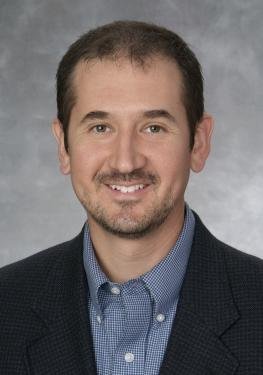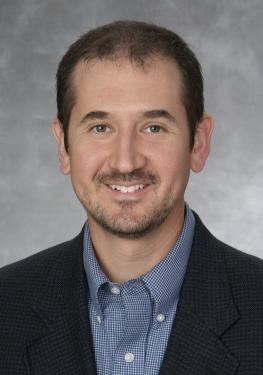Cardiac arrest occurs when the heart suddenly or unexpectedly stops pumping. You might not expect it to happen to your children, but it can happen.
Every year, stories are reported of seemingly healthy children and teens experiencing sudden cardiac arrest while exercising or sleeping. Although heart-related deaths from cardiac arrest are less common in young people, the unexpected death of a child has a devastating impact on families, schools, and communities.
February is Heart Month. This is a great opportunity to raise awareness and understanding of this heart problem that can affect anyone at any age.
We spoke with Dr. Andrew L. Papez, a pediatric cardiologist at Phoenix Children’s Heart Care Center, to answer four frequently asked questions about pediatric cardiac arrest.
What is cardiac arrest?
Cardiac arrest occurs when a person’s heart suddenly loses function, with or without heart disease. If the heart is not beating, it cannot pump blood to other parts of the body.
Cardiac arrest can have many causes, but the most common reason is that the heart develops an arrhythmia, or a problem with the heart’s electrical system.
“Normally, the heart beats in a controlled manner, and the brain and the rest of the body all send signals to the heart about how fast it’s beating,” Dr. Papez says. “The most common thing with cardiac arrest is something happens when your heart beats too fast. Your heart can’t produce adequate blood pressure to meet your body’s demands, and you pass out. .”
Several things can cause arrhythmia. The most common reasons for this in children are:
- Abnormalities in the heart muscle itself: In conditions such as hypertrophic cardiomyopathy and dilated cardiomyopathy, the heart muscle becomes abnormally thick or thin, making it difficult to pump blood effectively.
- Congenital abnormalities of coronary arteries.
- A fundamental abnormality in the heart’s electrical system.
- Inflammation of the heart due to another disease or myocarditis.
- Chest trauma: This is a rare event, but occurs slightly more frequently during baseball, hockey, and other sports that use projectiles such as sticks, pucks, and balls.
Is cardiac arrest the same as a heart attack?
These two terms are often used interchangeably, but they are not the same.
“Heart attack is a broad term, often applied when coronary artery disease blocks blood flow to the heart itself,” Dr. Papez said. “Cardiac arrest is when the heart stops pumping blood around the body. Cardiac arrest can be caused by a heart attack, but there are many other causes.”
Heart attack victims usually experience symptoms such as chest tightness and pain and remain unconscious.
Can CPR be used on a child who has cardiac arrest?
Yes, knowing how to perform CPR (cardiopulmonary resuscitation) and use an AED (automated external defibrillator) is not just a skill for adults. It’s important to teach children and teens how they can save lives if necessary.
When someone suddenly goes into cardiac arrest and bystanders begin CPR and defibrillation early, the chances of survival are greatly increased.
“The biggest tip for bystanders is to not be afraid to step in and help,” Dr. Papez said. “Early cardiopulmonary resuscitation after cardiac arrest more than doubles the chance of survival.”
Courses are offered regularly through the American Red Cross and the American Heart Association.
How can I prevent cardiac arrest?
As a parent or guardian, there are several steps you can take to prevent cardiac arrest. It all starts with regular well-child visits.
“Wellness exams help screen for many conditions that may put your child at risk, such as undiagnosed heart disease, and they also give you an opportunity to discuss any worries or concerns you may have about your child. ”
Pre-participation screening and sports physical exams are also important tools to prevent cardiac arrest. All Arizona Interscholastic Association or his AIA sanctioned sports require a cardiac screening form that asks a series of questions about the participant and family history.
“These are great screening questions that can help you find the needle in the haystack,” Dr. Papez said. “Please take these documents seriously and know your family history.”
If you have a sibling or other relative who has experienced cardiac arrest, your family should be evaluated to see if they have similar risk factors.
Phoenix Children’s Heart Care Center is here to help.
No matter your age, Phoenix Children’s Hospital’s cardiology team is equipped to diagnose and treat all heart conditions, from fetal diagnosis to neonatal, childhood, and adult cardiac care.
One of the nation’s leading pediatric cardiology programs, the Center for Heart Care includes cardiologists, cardiac surgeons, nurse practitioners, physician assistants, and other health care providers. The team also partners with cross-disciplinary experts if the patient has other health or genetic issues.
If you have questions or concerns about your child, please contact the Center for Heart Care at 602-933-3366.



